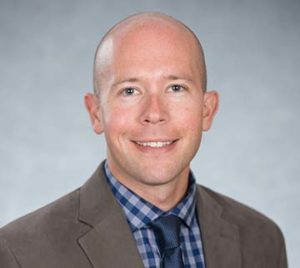Solemnity of the Most Holy Body and Blood of Christ
June 23, 2019

Readings:
Reading 1: Genesis 14:18-20
Psalm: Ps 110:1-4
Reading 2: 1 Corinthians 11:23-26
Gospel: Luke 9:11b-17
More than sixteen-hundred-years ago, St. Augustine addressed a group of catechumens whom he was instructing on the faith in anticipation of their baptism and reception into the church. In what has become known as Augustine’s “Sermon 272,” the great doctor of the church unpacks the theology of the Corpus Christi –– the Body of Christ — in a striking and profound manner. He affirms that what appears in the elements as bread and wine to the senses of the body are recognized as the sacramental presence of Christ to the senses of faith. As he puts it, “My friends, these realities are called sacraments because in them one thing is seen, while another is grasped.”
But he does not stop at an explication of the Eucharistic species of bread and wine as the only reality of Christ’s presence in the Eucharist. Drawing on the letters of St. Paul, he explains:
So now, if you want to understand the body of Christ, listen to the Apostle Paul speaking to the faithful: “You are the body of Christ, member for member” (1 Cor. 12:27). If you, therefore, are Christ’s body and members, it is your own mystery that is placed on the Lord’s table! It is your own mystery that you are receiving! You are saying “Amen” to what you are: your response is a personal signature, affirming your faith. When you hear “The body of Christ,” you reply “Amen.” Therefore, be a member of Christ’s body so that your “Amen” may ring true!
Augustine recognized that in addition to the sacramental presence of Christ in bread and wine, the Body of Christ is made present in the world in its members — you and me. When we celebrate the Eucharist and proclaim “amen” at communion, it is not merely an affirmation of what we grasp in faith present before us, but it is also — and in many ways, more importantly — an affirmation that we recognize Christ made present in the assembly of the faithful. In this way, Augustine reminds his hearers that we are meant to “Be what you see; receive what you are” at the Eucharist.
As we celebrate the Solemnity of the Body and Blood of Christ, how do we think about Christ’s presence among us? The Second Vatican Council in its constitution on the liturgy, Sacrosanctum Concilium, reiterates Augustine’s theological insights, reminding the church that Christ is made present in the Eucharistic species, the Word, and in the assembly including the presider (no. 7). It’s this last form — the people of God — that is most often overlooked in general and on this feast day in particular.
Our Second Reading from the First Letter to the Corinthians contains what is often called the “institution narrative.” As important as this language is for our Eucharistic Prayer, the Gospel of the day takes a decidedly different direction. Interestingly, the Gospels are less concerned with the words of institution or some kind of proto-rubrics of Eucharistic liturgy and instead focus on the relationship among the members of Christ’s Body. In Luke’s account we have Jesus telling the Twelve that they must care for those who have gathered around Jesus for healing and inspiration. “Give them some food yourselves,” he says. Like at the Lord’s Supper, bread is broken and shared. But we might also hear Jesus’s command to his followers — to us today — through the theological filter of Augustine and Vatican II and recognize Jesus calling us to “give them yourselves as food.”
“Be what you see; receive what you are.”
The celebration of the Eucharist is not an end in itself, nor is the Eucharist a reward for the perfect. We gather at the Lord’s Table to hear the Word and break the bread in order to be renewed in our relationships with God and one another. As John’s Gospel recounts in the washing of the feet, we are not meant to stay at the table (or in the pew), but move outward in a spirit of service and solidarity.
Christ gives himself to us in the Eucharist, but also in his body which is the church made of all the baptized. If we really are to become what we receive, we must keep this in mind and put that “amen!” we proclaim at Mass into action the other six days and twenty-three hours of the week. Only then, as Augustine exhorted the catechumens centuries ago, will our “amen” ring true!
Rev. Daniel P. Horan, OFM
Assistant Professor of Systematic Theology and Spirituality